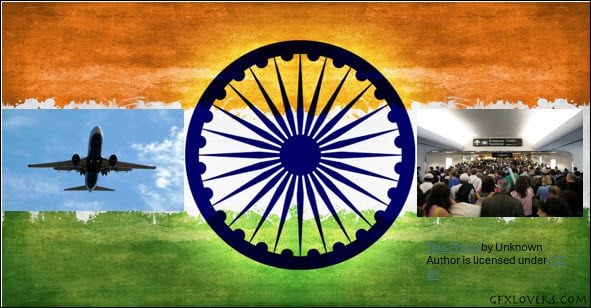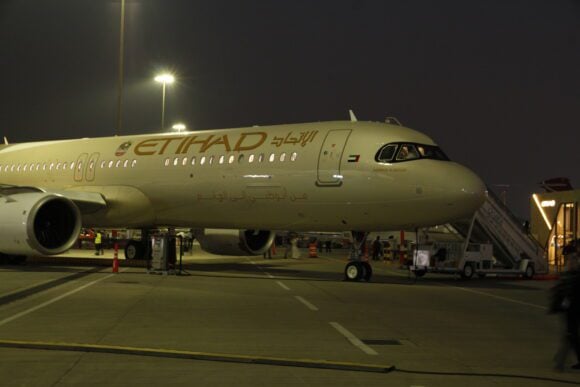
Indian aviation
The world watched with interest as US President Donald Trump labored to repeatedly assert that he deserved credit for averting a potential nuclear war between India and Pakistan last week.
While the de-escalation was certainly a relief for many, notably India’s airlines, few, including the Indian government, gave much weight to Trump’s assertions.
But Act 2 of the geopolitical drama was quick to unfold, and anxiety once again spiked for carriers such as IndiGo, Air India, Akasa Air, and SpiceJet.
India banned Turkey’s Çelebi Aviation from operating in the country on security grounds. Turkey had openly aided Pakistan by supplying military equipment during the recent crisis, besides making public statements supportive of Islamabad. Air India and Turkish Airlines share an interesting history.
The response was swift — and symbolic — because just a year ago, India was one of the first countries to send a Boeing C-17 Globemaster loaded with medical supplies, rescue equipment, and humanitarian aid following Turkey’s devastating 2023 earthquake. Now, in return, India has received drones targeting its citizens.
Çelebi’s stock has plunged over 20% since the announcement, and the company has filed a legal challenge against the Indian government’s decision. It claims to have invested $250 million in India since 2009 and earns consolidated global revenues of around $600 million annually.
Now, attention has turned to IndiGo, which maintains a deep codeshare alliance with Turkish Airlines and even operates wet-leased Boeing 777 aircraft staffed by Turkish pilots and crew on routes to Istanbul. Just as Turkey’s diplomatic stance rattled observers, a fresh twist came with reports that Air India has urged the Indian government to block the renewal of these leases when they come up for extension at the end of May.
Documents cited in media reports suggest that Air India told the government the IndiGo-Turkish Airlines arrangement has led to a “substantial increase in seat capacity” to Turkey and claimed that “the codeshare partnership between IndiGo and Turkish Airlines provides an extra revenue stream for Turkish Airlines, further enhancing their financial gains.”
Air India further argued that this alliance doesn’t just cannibalise its own direct traffic to Turkey but also undercuts broader national interest by strengthening a foreign airline’s hub.
This open confrontation between the country’s two largest airlines will be closely watched, especially with the upcoming International Air Transport Association (IATA) Annual General Meeting scheduled in Delhi on June 1, marking its return to India after more than 40 years. IndiGo is playing host, while Air India is looking to assert its presence as it continues shedding its old government-run identity in favor of a modern global avatar under the Tata Group.
But has air traffic to Turkey really surged since IndiGo and Turkish Airlines deepened their partnership?
According to data from India’s aviation regulator, the Directorate General of Civil Aviation (DGCA), reviewed by Air Insight, the answer is yes. In 2018–19, the last full year before the pandemic, 503,231 passengers traveled from India to Istanbul. That number almost doubled in 2023–24, reaching 914,831. For April to December 2024 alone — the latest period for which data is available — 740,865 passengers had already flown the route.
Calls for a boycott of Turkey have gained traction across India, with some travel portals witnessing sharp drops in bookings and a rise in cancellations. Nearly 336,000 Indian tourists visited Turkey in 2024. If sustained, this backlash could indeed dent the passenger flow between the two nations.
In the meantime, countries like Greece have begun courting Indian travelers as an alternative, though whether it can replicate Turkey’s appeal remains uncertain.
Turkey worked well for Indian tourists because it didn’t require a tedious Schengen visa application and was also a more affordable yet equally picturesque and exotic destination.
For now, what is clear is that Pakistan will continue to hurt local aviation, even though its drone strikes have ceased and Indian ballistic missiles have stopped landing in the neighbourhood in return, because its airspace remains closed to Indian carriers, forcing them to take longer routes.
Even the CEOs flying in from the US and Europe, etc., for the IATA summit might find themselves on such routes if their airlines avoid Pakistani airspace as a precaution.
The timing of the terrorist attack and resultant kinetic action couldn’t have come at a worse time for Indian aviation, which had just recovered from the pandemic-induced turbulence, only to face fresh geopolitical headwinds blowing in from Islamabad and Ankara.
Views: 194
About The Author
Take AirInsight for a Test Flight
7 days full access — premium analysis and the complete data model library — for $1. No commitment.
Start My Test Flight → {
"@context": "https://schema.org",
"@type": "WebPage",
"name": "AirInsight in the Media",
"description": "A curated list of media citations where AirInsight insights are used."
}
{
"@context": "https://schema.org",
"@type": "WebPage",
"name": "AirInsight in the Media",
"description": "A curated list of media citations where AirInsight insights are used."
}


